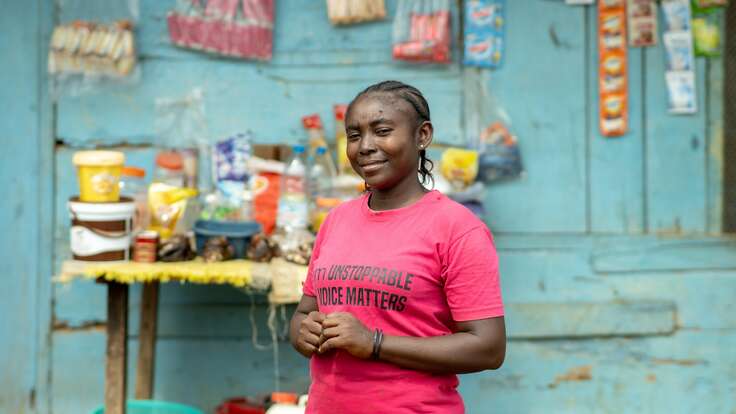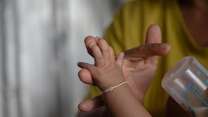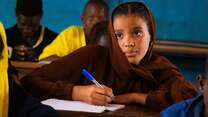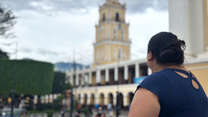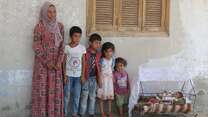The escalating humanitarian crises we see today impact women and girls differently and disproportionately. In addition, the world has witnessed a global rollback on women’s and girls’ rights over the past few years. This calls for significantly ramped up efforts to address gender equality in crises, and the EU is well placed to continue its strong global leadership in this regard. Failing to effectively redress gender inequality has a knock-on effect on the humanitarian response overall, and efforts will continue to falter without a feminist approach which places strong, funded partnerships with women-led organisations (WLOs) front and centre.
These organisations are a critical driving force in providing effective response services to women and girls impacted by conflict and displacement, and are strong partners in identifying needs, building trust, and accessing hard to reach and diverse populations. Women’s leadership brings greater awareness of, and responsiveness to, women’s gender-based needs in humanitarian emergencies. It contributes to better disaster preparedness and risk reduction, and has the potential to advance conflict resolution in communities. This critical expertise is currently largely missing from humanitarian efforts, with feminist civil society remaining dramatically underfunded.
There is a need for women’s and girls’ leadership in programme design and related strategic decision making within the context of ECHO’s, INTPA’s and NEAR’s efforts. Indeed, women and girls should be considered as agents of change, and the approach, knowledge and access of WLOs can have transformative results in crises and beyond. The following steps should be taken:
- ECHO, INTPA and NEAR should continue to champion efforts that go beyond merely funding gender-responsive programming. By supporting more transformative strategies, funders can help drive progress towards gender equality through women’s leadership and economic empowerment. The EU is well placed to show strong leadership globally in this regard.
- ECHO, INTPA and NEAR should fund well positioned groups such as the GBV Sub-Cluster or the UN Women Gender in Humanitarian Action to conduct mappings of the WLOs operating in-country, paying particular attention to youth-led WLOs. Such a mapping could inform a more inclusive humanitarian set up in-country and help facilitate partnerships between INGOs and WLOs.
- ECHO should, in accordance with the ECHO Guidance Note advance positive partnership practice, for example through a dedicated percentage of the Programmatic Partnership for WLO empowerment. This could involve a dialogue with WLOs on whether an ECHO/INTPA advisory group of WLO leaders would be appropriate, to ensure consistent consultation and meaningful involvement in programme design and decision making. It could also ensure a direct link between WLOs and decision-making bodies, facilitating their access to information and opportunities.
To accelerate progress towards its localisation targets and fulfil its feminist ambitions to fund WLOs, the EU should further diversify funding allocations, include explicitly feminist funds, and commit to measurable targets to increase the amount and quality of funding going to WLOs within humanitarian contexts.
- ECHO must follow through on its commitment, as outlined in its 2023 guidance note, to increasing its support to other funding mechanisms that benefit local actors, such as multi-year funding and Programmatic Partnerships, including projects that focus on WLOs and those representing marginalised groups.
- DGs should consider the best way of funding local WLOs. Options include the development of a specific joint ECHO/INTPA fund to support feminist organisations, following the example of the Dutch initiatives “Leading From the South” or “Global Alliance for Green and Gender Action”. Such a specific, ring-fenced fund to support WLOs could be modelled along the lines of the AFD fund, and managed through a Team Europe approach. Alternatively, these funds could also be funnelled by ECHO and INTPA to feminist organisations via existing global funds such as the Equality Fund, the Women’s Peace and Humanitarian Fund, regional funds such as the Urgent Action Fund Africa or national funds such as the Ukrainian Women’s Fund. These are able to offer smaller grants with more flexibility to local partners, and can absorb some of the administrative burden between donor and WLO grantees.
Leverage the EU’s Gender Action Plan (GAP) III as a key instrument to tackle the global rollback on women’s rights.
- All actors involved in the further development of the Action Plan ought to ensure that it places strong emphasis on the leadership of female-led civil society, with clear aims and objectives to realise this vision. This will enable the EU to leverage the GAP as a key instrument within the context of a global backsliding of gender equality, and play a leading role in advancing gender justice through its diplomatic and humanitarian work around the world.

